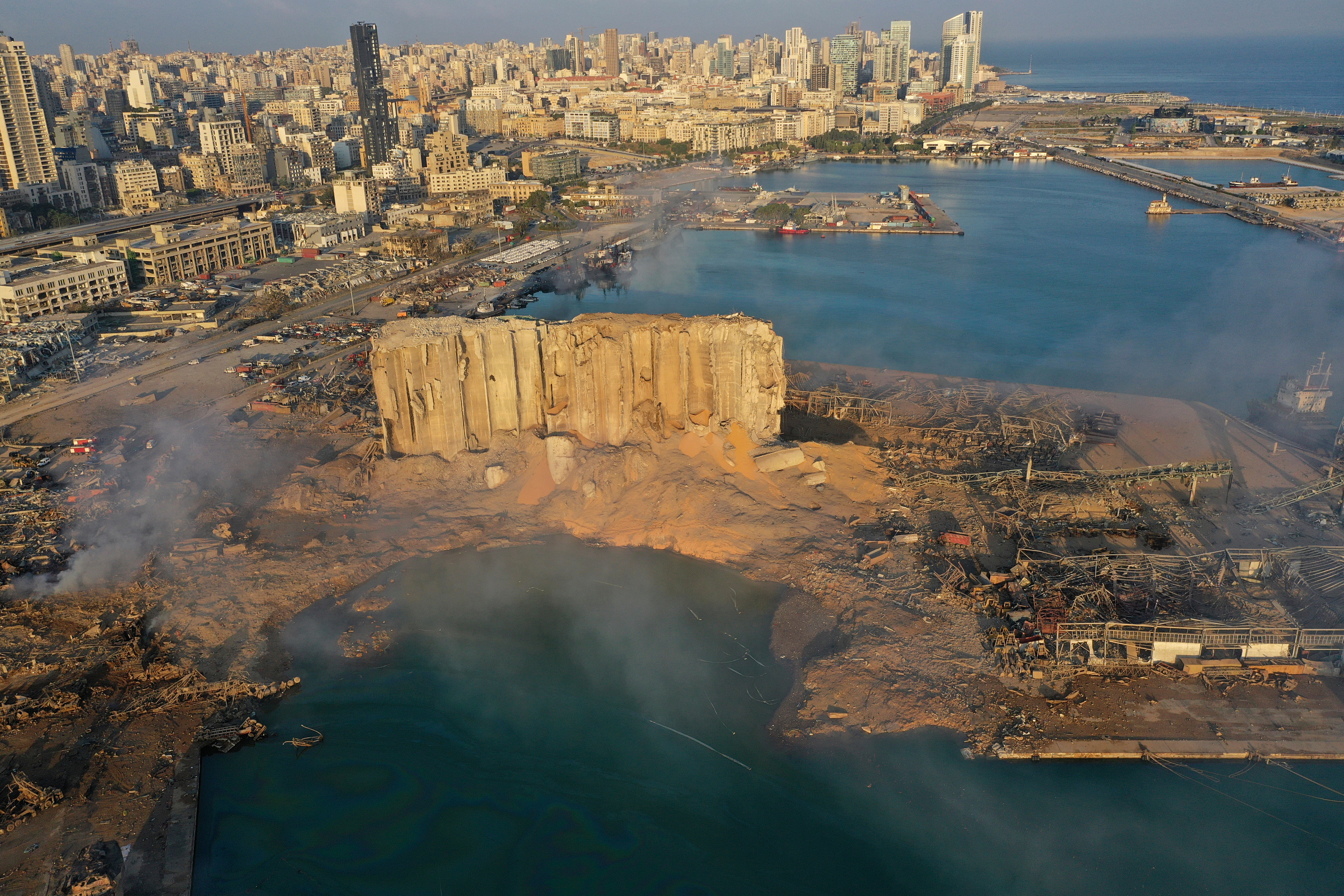Lebanon request satellite images for site of Beirut blast
Lebanon's state news agency says the judge investigating last year’s massive explosion in Beirut’s port has sent requests to countries that have satellites stationed over tiny Lebanon to provide images from that time that could help the investigation

Your support helps us to tell the story
From reproductive rights to climate change to Big Tech, The Independent is on the ground when the story is developing. Whether it's investigating the financials of Elon Musk's pro-Trump PAC or producing our latest documentary, 'The A Word', which shines a light on the American women fighting for reproductive rights, we know how important it is to parse out the facts from the messaging.
At such a critical moment in US history, we need reporters on the ground. Your donation allows us to keep sending journalists to speak to both sides of the story.
The Independent is trusted by Americans across the entire political spectrum. And unlike many other quality news outlets, we choose not to lock Americans out of our reporting and analysis with paywalls. We believe quality journalism should be available to everyone, paid for by those who can afford it.
Your support makes all the difference.The judge investigating last year’s massive explosion at Beirut’s port on Tuesday requested that countries with satellites stationed over Lebanon provide authorities with images that could help their investigation, the state news agency reported.
National News Agency did not name the countries that Judge Tarek Bitar asked for images of the port before, during and after the blast.
Nearly 3,000 tons of ammonium nitrate — a highly explosive material used in fertilizers — had been improperly stored in the port for years. The catastrophic blast on Aug. 4 killed 211 people and injured more than 6,000, devastating nearby neighborhoods.
Days after the explosion, President Michel Aoun said he had asked France which has close ties to its former colony, for satellite images from the time to see if they showed any planes or missiles. In the immediate aftermath of the blast, authorities did not rule out an attack, though no evidence emerged to suggest it.
Outgoing Prime Minister Hassan Diab had also said after the explosion that he asked French President Emmanuel Macron for satellite images of the port before and after the blast.
Youssef Diab, a Lebanese journalist who closely follows the investigation, said the request by Bitar is a formal legal memorandum for which a response is obligatory, and it indicates that he has not ruled out the possibility of an attack.
Diab, no relation to the outgoing prime minister, said the countries include United Arab Emirates, France, the U.S., China, Japan, Canada and Turkey. The move comes after Lebanon asked France for satellite images. Diab said France has maintained its investigation in the port explosion is not yet complete.
“The idea is to figure out from the images if there were flights over the port or if the port was targeted,” he said. The judge “has expanded the realm of possibilities” of what might have caused the explosion.
Nine months later, it remains unknown what triggered an initial fire at the warehouse that then caused the explosion or who was responsible for storing the rotting fertilizer at the port warehouse for years.
Bitar was named to lead the investigation in February after his predecessor was removed following legal challenges by two former Cabinet ministers he had accused of negligence. The news agency said Bitar will soon begin questioning witnesses whose testimonies were not taken before. It gave no further details.
In mid-April, Bitar ordered the release of six people, including security officers, who had been detained for months. Among those released was an officer who had written a detailed warning to top officials prior to the explosion about the dangers of the material stored at the port.
Nineteen people, including port officials and the head of the customs department, remain in custody.
Human Rights Watch said Lebanese authorities have failed to detail the evidence and charges against the individuals detained, questioning if they were afforded due process.
___
Associated Press writer Sarah El Deeb contributed to this report from Beirut